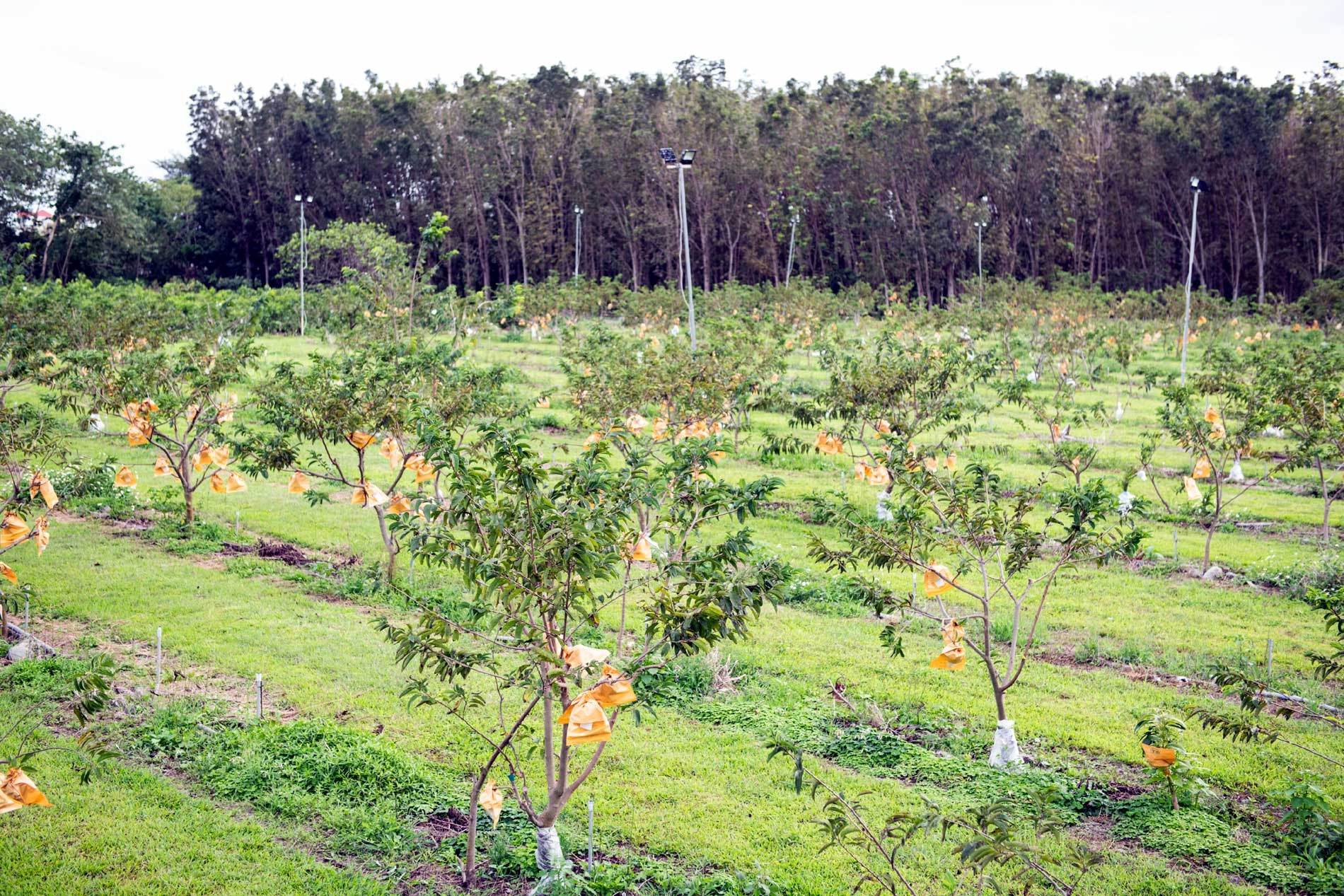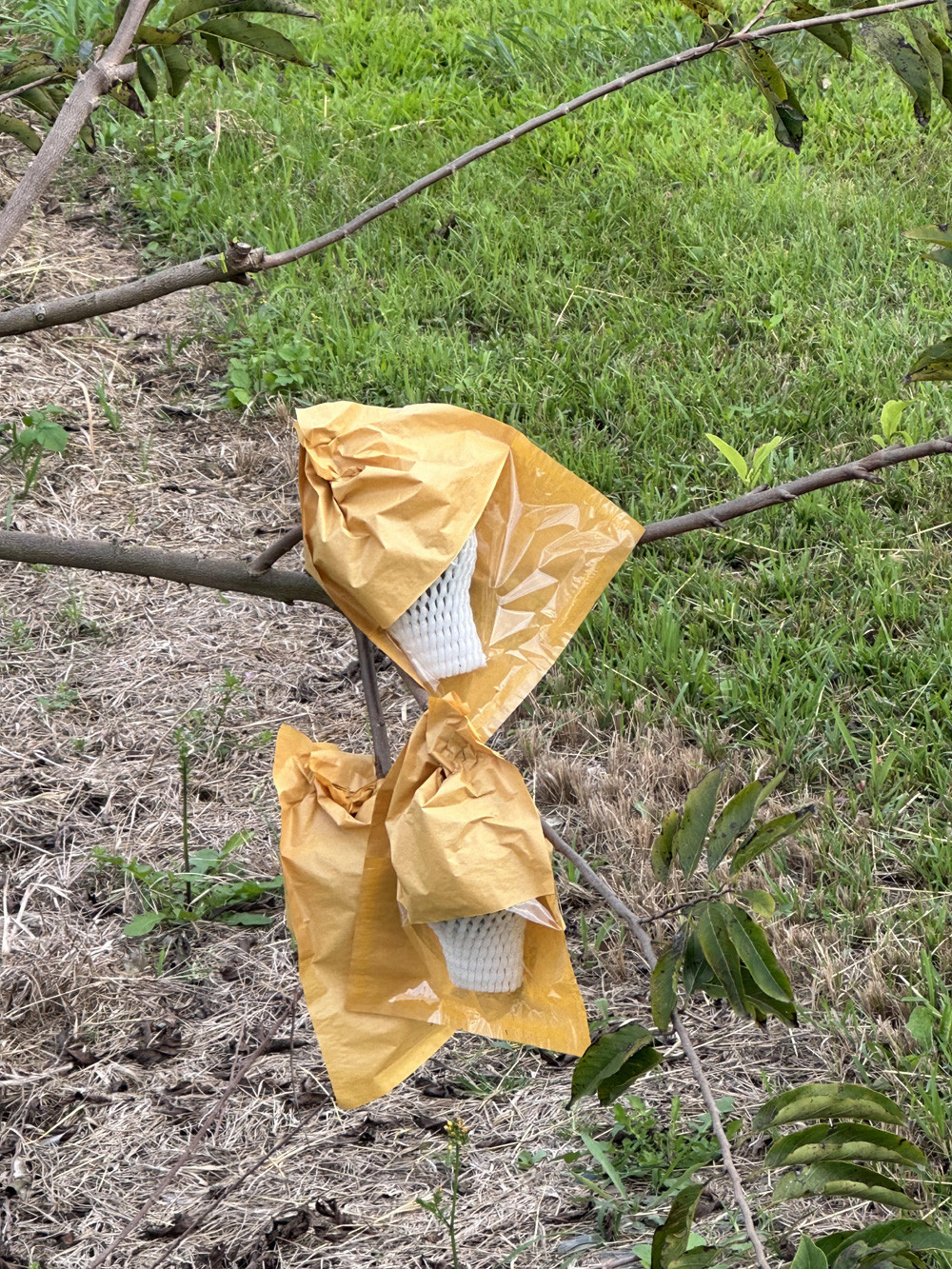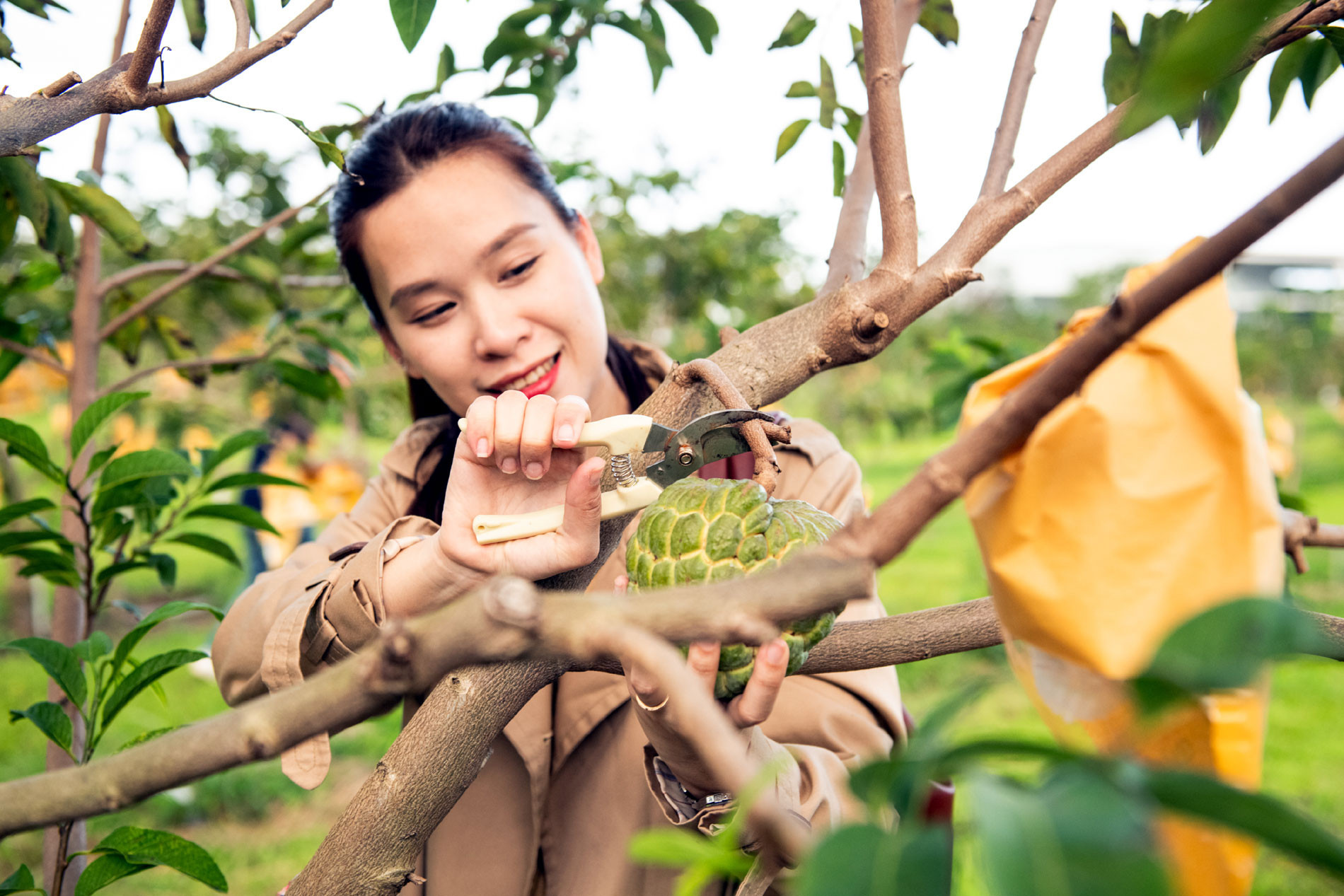In recent years, many farms in Taitung have embraced agrotourism, opening their orchards to visitors interested in fruit picking and learning about cultivation techniques. This approach not only raises farmers' incomes but also enhances the cultural and educational value of the local agricultural industry.
Tourists typically flock to Taitung during the sugar apple harvest season, from December to April, to hand-pick fruit, make pineapple sugar apple jam or ice cream, and participate in organic farming activities. Several farms have built successful agricultural brands by promoting these immersive local experiences. On average, agrotourism services account for 30–40% of their annual revenue.
Zhang Jian, who manages 5 hectares of orchards, shared that in favorable weather years, profits can reach NT$300,000 per metric ton (approximately USD 10,000 per ton) after deducting all expenses.
Taiwan’s agricultural sector is known for its use of advanced production technologies, and pineapple sugar apple farming is no exception. Every stage – from seed selection, fertilization, irrigation, to harvest – follows either fully organic or semi-organic practices. Many farms use automated drip irrigation, biological fertilizers, and natural pest control systems. As a result, the fruit meets premium quality standards and complies with strict export requirements.
Taitung is home to numerous pineapple sugar apple farms, ranging from a few hectares to several dozen. Smallholder farmers have formed cooperatives to share knowledge, access agricultural financing, and jointly market their produce. Recent figures show that each hectare can yield between 12 to 20 metric tons annually, depending on farming techniques and weather conditions.
Local authorities regularly support growers through biotech transfer projects, soil analysis, and organic pest control initiatives. These government programs help improve productivity and quality while connecting farmers with export markets and international fairs to promote their products globally.
The harvest season from December to April is not only the best time to savor this tropical delicacy but also an ideal opportunity for travelers to discover Taitung’s spectacular landscapes of mountains and sea, while enjoying fruit straight from the source.
An Nhien





